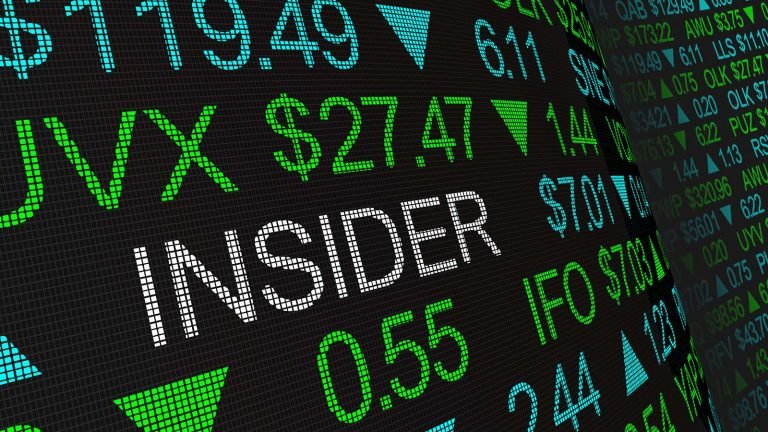Peter Lynch, the famed manager of Fidelity Investments, was once quoted as saying, "Insiders may sell their shares for any number of different reasons, but there is only one reason they purchase new shares: they believe the price will go up. The Fidelity Magellan Fund, which Lynch managed, went from having $18 million in assets to having $14 billion in assets over 13 years. Lynch believed in conducting fundamental analysis and having a solid understanding of a company's product and practices before investing in the company.
Who else knows a company's product and prospects better than the company's executives when considered as a group? Following public databases that monitor insider purchasing is a lawful way for investors to capitalize on insider information and gain a competitive advantage. Tracking the purchasing and selling actions of an organization's insiders may be seen to be an essential component of doing thorough due diligence before investing in a business by others. The procedure is as follows.
Who Are Insiders and Why Do They Buy or Sell?
The SEC of the United States of America defines "insiders" as the following: "management, officials, or any beneficial owners who possess more than 10% of a certain class of a company's securities are subject to this provision. Insiders are required to follow specific requirements, one of which is to file SEC paperwork whenever they acquire or sell company shares. In addition, the law prohibits insiders from selling their shares within the first six months after purchasing them. This is done to prevent insider trading, the criminal practice of profiting illegally from substantial non-public knowledge to which their positions provide access. This makes it impossible for insiders to benefit from fast-swing transactions based on their market knowledge.
What Does It Mean When Insiders Buy or Sell?
Corporate insiders' buying is often seen as a positive indicator since it indicates that management trusts the firm. In other words, the insiders believe there is a likelihood of an increase in the price of their shares. Insider sales are often seen as a pessimistic sign since it suggests that people with superior market knowledge are selling their shares with the assumption that prices will decline shortly.
According to research conducted in 2003 by Leslie A. Jeng and Richard Zeckhauser of Harvard University, and Andrew Metrick of Yale University, insider purchases outperformed the market by 11.2% per year. Notable was the fact that insider sales did not generate a comparable amount of profit. Because of this, a significant number of investors monitor the actions of company insiders.

Insider Buying in the U.S.
The SEC mandates that all public firms, with the exception of the tiniest microcaps that trade on the over-the-counter platforms, must record any transactions involving company insiders within two business days. They are required to submit Form-3 with the SEC upon initial ownership, Form-4 with the SEC anytime any changes occur, and Form-5 with the SEC for any changes that were either not disclosed earlier or were eligible for a deferral.
On the SEC's EDGAR database, a collection of legal filings unique to every company presently publicly listed on any U.S. stock exchange, you may find a list of companies that have submitted Form-4 filings. There is good news for those who find that searching through the EDGAR database takes up too much of their time. There are a lot of websites that cover financial news that monitors and publicize insider trades. The websites listed below are a few examples of those that provide databases and information on insider trades.
- A report published on Forbes every other day highlights some significant insider transactions.
- Finviz provides a database of insider transactions that is both free and searchable.
- GuruFocus provides a searchable database. However, a membership to see insider deals in the markets of the Netherlands and Canada may be purchased for a price.
- Although registration is necessary to access all of the website's capabilities, J3SG is a free website that provides real-time alerts on insider transactions and a comprehensive database of insider and institutional ownership that can be searched.

Conclusion
Insiders are required by law in both the United States and Canada to make prompt disclosures on their purchases and sells of company shares and to list these transactions on a public database. Tracking insider purchasing is something that investors should undertake since, on average, insiders outperform the market. The purchase of shares by company insiders often signals that the stock price will shortly increase.



